Recent blog posts
Blog topics
-
Library ambassadors (80)
-
library week (2)
-
Omni (6)
-
Reno (13)
-
renovation (5)
-
staff (1)
-
Subscriptions ending (29)
Blog posts by audience
Blog posts archive
Where is a great place to find information about climate...the library! We’ve asked librarians Agnes Zientarska-Kayko (Environment, Enterprise and Development, Government Information and Statistics & Data) and Brie McConnell (Biology and Optometry), and Library Ambassador and PhD candidate Navya Vikraman Nair (Water Quality & Coastal Fisheries) for their perspectives on research, resources and more.
Agnes Zientarska-Kayko
Hi, my name is Agnes Zientarska-Kayko and I’m the liaison librarian for the School of Environment, Enterprise and Development, Government Information and Statistics & Data.
What is your favorite thing about being the librarian for Environment and Business and SEED?
I get to meet and help students and researchers who are looking for resources. I’m always fascinated by the topics they are researching, and I learn from them a lot.
What’s one database you would point students towards to get more information about climate?
The first database I always check and recommend is Scopus. It is a large multidisciplinary database covering life and health sciences, agriculture, environment, engineering, technology, social sciences and more.
Have you assisted in any research projects related to climate?
The majority of research questions I’m asked to help with are related to climate change. Often peoples’ research has to do with climate change consequences and prevention. For example, a graduate student was researching fashion and environmental attitude. She was investigating whether people who are interested in fashion are less environmentally conscious. I helped her find data related to recycling and waste of textiles in Canada. Another interesting question I was recently asked was about finding literature on the sustainability of outer space exploration. I have helped students many times with finding literature and data related to climate change and sustainability of the Earth, but this was my first out of this world question.
Do you have any favorite books related to the environment and climate?
Here are two books I would recommend:
A Good War: Mobilizing Canada for the climate emergency by Seth Klein
Canadian climate varies across the country. What resources would you point students and researchers towards to learn more information about how climate influences the people, plants and animals that live within the various regions?
There are many great resources students could be checking, starting with our catalogue Omni, various databases that the University of Waterloo Library subscribes to like Scopus, Web of Science, ABI/Inform, PAIS International. Students can also check the following free government resources: Library of climate resources, Climate Data for a Resilient Canada, Historical Climate Data, Open Government Portal and Climate Change Publications. And as always, students can contact me azientar@uwaterloo.ca if they need help.
Brie McConnell

Hi, my name is Brie McConnell, and I am one of the STEM (Science, Technology, Engineering, and Math) liaison librarian’s here at the University of Waterloo. To try and cope with the stressors of the pandemic, this past Spring I started backyard vegetable and herb gardens. Not everything in the garden worked; the raccoons ate all the corn, and we were quickly overrun by our hops vines and yet, it was an amazing experience that provided me with grounding calm and peace during a difficult time. My gardens also provided me with a newfound appreciation of how essential a meaningful and sustainable connection is to our natural world for our physical and mental health.
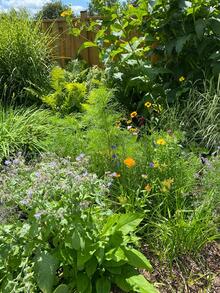
What is your favorite thing about being the librarian for Biology and Optometry and Vision Science?
Aside from the students and faculty who I get to work with, I would have to say that I love my reading lists. This week I’ve read all about the impact of blue light on teenage readers, and then took an in-depth dive into shrimp virology. Being a reader in STEM is fascinating; I learn something new every single day.
What’s one database you would point students towards to get more information about climate
The Biodiversity Heritage Library (BHL) is awesome. In partnership with the Smithsonian Museum of Natural History, this library prides itself on providing open-access to some incredible biodiversity resources and collections. From digitized field notes to in-depth botanical specimens, the BHL has some amazing and beautiful digital collections available to support your research.
https://subjectguides.uwaterloo.ca/biodiversity-heritage 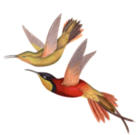
Do you have any favorite books related to the environment and climate?
The Death and Life of the Great Lakes by Dan Egan
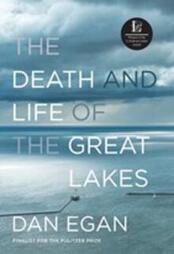
Braiding Sweetgrass: Indigenous wisdom, scientific knowledge and the teachings of plants by Robin Wall Kimmere
r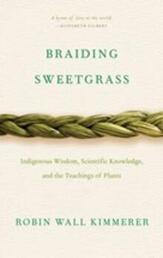
Biodiversity and Climate Change: Transforming the Biosphere edited by Thomas E Lovejoy and Lee Hannah
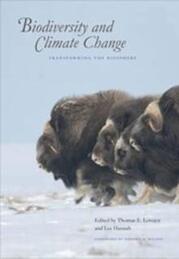
Canadian climate varies across the country. What resources would you point students and researchers towards to learn more information about how climate influences the people, plants and animals that live within the various regions?
Climate Atlas of Canada is an awesome, interactive resources developed by the team at the Prairie Climate Centre (PCC) and the University of Manitoba. This is a fantastic, evidence-based resource that combines climate science and mapping to provide a local context for climate change in Canadian communities. Students and researchers can explore climate change through data, maps and graphs as well as documentary video that were developed in collaboration with local and Indigenous knowledge holders, for a truly unique and comprehensive perspective on how climate change is impacting Canadian communities. The Atlas’s resources are also connected to opportunities for local action and advocacy, so this is a great resource for staying up-to-date with current climate initiatives.
Navya Nair
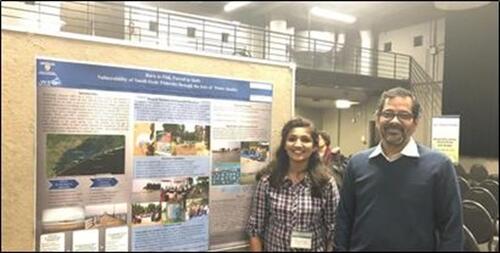
Hi, I’m Navya V Nair, first year PhD student in Sustainability Management. I recently completed my master’s degree in Sustainability Management at Waterloo. I also hold a Master of Technology in Environmental Engineering and Bachelor of Technology in Civil Engineering.
Tell us a little bit about your research
My master’s thesis was on the impact of water quality on small-scale fisheries (SSF). I explored the variation of water quality parameters and how it affects the livelihood of small-scale fishing communities. Also, it provides insights on following the sustainable development goals for viable and secure small-scale fishing. My research interests are water quality, small-scale fisheries, wastewater treatment, microbial fuel cell, bio-energy generation and sustainable development.
What was the reason you chose this subject matter? How did you come up with the hypothesis and what made you interested in it?
My research background is mostly on water quality and wastewater treatment. My supervisor Dr. Prateep Nayak, Associate Professor and Associate Director of Graduate Studies in the School of Environment, Enterprise and Development, at Waterloo does transdisciplinary work with an active interest in combining social and ecological perspectives. My interest in transdisciplinary works with the motivation of my supervisor led to connecting natural science to social science in terms of small-scale fisheries. I came up with the hypothesis regarding gap of understanding and water quality and SSF according to the context of my study location, Chilika Lagoon, Asia’s biggest brackish water lagoon.
What is the real-life application for this research?
The research helps to find the sources of social and ecological threats which will help in proper utilization of resources as well as to develop proper management ecosystem services leading to the security of the SSF communities. The academicians, researchers, governmental and non-governmental organizations, stakeholders can take this data a step further for the overall development and protection of the environment.
What would be the impact of this research? How do you think this would affect current world infrastructure?
The results of the study can be utilized in developing knowledge of the fishing community to identify peculiarities and local features by regional and global levels for preserving the ecosystem. Scope of restoration projects for salt marshes, wetlands and estuaries can capture and store considerable amounts of carbon while also benefiting local populations socially and economically can be considered through this research as well. The results of the study can be replicated in variety of coastal contexts.




